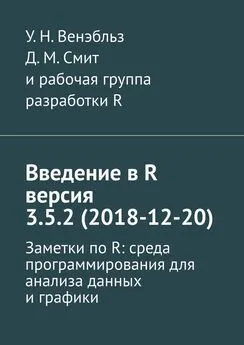Брайан Керниган - UNIX — универсальная среда программирования
- Название:UNIX — универсальная среда программирования
- Автор:
- Жанр:
- Издательство:Финансы и статистика
- Год:1992
- Город:Москва
- ISBN:5-289-00253-4
- Рейтинг:
- Избранное:Добавить в избранное
-
Отзывы:
-
Ваша оценка:
Брайан Керниган - UNIX — универсальная среда программирования краткое содержание
В книге американских авторов — разработчиков операционной системы UNIX — блестяще решена проблема автоматизации деятельности программиста, системной поддержки его творчества, выходящей за рамки языков программирования. Профессионалам открыт богатый "встроенный" арсенал системы UNIX. Многочисленными примерами иллюстрировано использование языка управления заданиями shell.
Для программистов-пользователей операционной системы UNIX.
UNIX — универсальная среда программирования - читать онлайн бесплатно ознакомительный отрывок
Интервал:
Закладка:
As is always the case with floating point numbers,
equality comparisons are inherently suspect. .PP
.I Hoc
also has a few built-in constants, shown in Table 3.
.TS
center, box;
c s s
lfCW n l.
\fBTable 3:\fP Built-in Constants
.sp .5
DEG 57.29577951308232087680 @180/ pi@, degrees per radian
E 2.71828182845904523536 @e@, base of natural logarithms
GAMMA 0.57721566490153286060 @gamma@, Euler-Mascheroni constant
PHI 1.61803398874989484820 @( sqrt 5 +1)/2@, the golden ratio
PI 3.14159265358979323846 @pi@, circular transcendental number
.ТЕ
.ix table~of [hoc] constants
.NH
Statements and Control Flow
.PP
.I Hoc
statements have the following grammar:
.DS
.I
stmt: expr
| variable = expr
| procedure ( arglist )
| while ( expr ) stmt
| if ( expr ) stmt
| if ( expr ) stmt else stmt
| { stmtlist }
| print expr-list
| return optional-expr
stmtlist: \fR(nothing)\fI
| stmlist stmt
.R
.DE
An assignment is parsed by default as a statement rather than
an expression, so assignments typed interactively
do not print their value.
.PP
Note that semicolons are not special to
.ix [hoc] input~format
@hoc@: statements are terminated by newlines.
This causes some peculiar behavior.
The following are legal
.IT if
statements:
.DS
.ft CW
if (x < 0) print(y) else print(z)
if (x < 0) {
print(y)
} else {
print(z)
}
.ft
.DE
In the second example, the braces are mandatory:
the newline after the
.I if
would terminate the statement and produce a syntax error were
the brace omitted.
.PP
The syntax and semantics of @hoc@
control flow facilities are basically the same as in C.
The
.I while
and
.I if
statements are just as in C, except there are no @break@ or
@continue@ statements.
.NH
Input and Output: @read@ and @print@
.PP
.ix [hoc] [read]~statement
.ix [hoc] [print]~statement
The input function @read@, like the other built-ins,
takes a single argument. Unlike the built-ins, though, the argument
is not ал expression: it is the name of a variable.
The next number (as defined above) is read from the standard input
and assigned to the named variable.
The return value of @read@ is 1 (true) if a value was read, and 0 (false)
if @read@ encountered end of file or an error.
.PP
Output is generated with the ©print© statement.
The arguments to @print@ are a comma-separated list of expressions
and strings in double quotes, as in C.
Newlines must be supplied;
they are never provided automatically by @print@.
.PP
Note that @read@ is a special built-in function, and therefore takes
a single parenthesized argument, while @print@ is a statement that takes
a comma-separated, unparenthesized list:
.DS
.ft CW
while (read(x)) {
print "value is ", x, "\n"
}
.ft
.DE
.NH
Functions and Procedures
.PP
Functions and procedures are distinct in @hoc@,
although they are defined by the same mechanism.
This distinction is simply for run-time error checking:
it is an error for a procedure to return a value,
and for a function @not@ to return one.
.PP
The definition syntax is:
.ix [hoc] function~definition
.ix [hoc] procedure~definition
.DS
.I
.ta 1i
function: func name() stmt
procedure: proc name() stmt
.R
.DE
.I name
may be the name of any variable \(em built-in functions are excluded.
The definition, up to the opening brace or statement,
must be on one line, as with the
.I if
statements above.
.PP
Unlike C,
the body of a function or procedure may be any statement, not
necessarily a compound (brace-enclosed) statement.
Since semicolons have no meaning in @hoc@,
a null procedure body is formed by an empty pair of braces.
.PP
Functions and procedures may take arguments, separated by commas,
when invoked. Arguments are referred to as in the shell:
.ix [hoc] arguments
.IT $3
refers to the third (1-indexed) argument.
They are passed by value and within functions
are semantically equivalent to variables.
It is an error to refer to an argument numbered greater than the
number of arguments passed to the routine. The error checking
is done dynamically, however, so a routine may have variable numbers
of arguments if initial arguments affect the number of arguments
to be referenced (as in C's @printf@).
.PP
Functions and procedures may recurse, but the stack has limited depth
(about a hundred calls). The following shows a
.I
hoc
definition of Ackermann's function:
.ix Ackermann's~function
.DS
.ft CW
.ix [ack]~function
.S $ "hoc
.S "func ack() {
.S " if ($1 == 0) return $2+1
.S " if ($2 == 0) return ack($1-1, 1)
.S " return ack($1-1, ack($1, $2-1))
.S "}
.S "ack(3, 2)
29
.S "ack(3, 3)
61
.S "ack(3, 4)
hoc: stack too deep near line 8
\&...
.ft
.DE
.bp
.NH
Examples
.PP
Stirling's~formula:
.ix Stirling's~formula
.EQ
n! ~\(ap~ sqrt {2n pi} (n/e) sup n (1+ 1 over 12n )
.EN
.DS
.ft CW
.S $ hoc
.S "func stirl() {
.S " return sqrt(2*$1*PI) * ($1/E)"$1*(1 + 1/(12*$1)) .S "}
.S "stirl(10)
3628684.7
.S stirl(20)
2.4328818e+18
.ft R
.DE
.PP
Factorial function, @n!@:
.ix [fac]~function
.DS
. S "func fac() if ($1 <= 0) return 1 else return $1 * fac($1-1)
.ft R
.DE
.PP
Ratio of factorial to Stirling approximation:
.DS
.S "i = 9
.S "while ((i = i+1) <= 20) {
.S \ \ \ \ \ \ \ \ print\ i,\ "\ \ ",\ fac(i)/stirl(i),\ "\en"
.S "} .ft CW
10 1.0000318
11 1.0000265
12 1.0000224
13 1.0000192
14 1.0000166
15 1.0000146
16 1.0000128
17 1.0000114
18 1.0000102
19 1.0000092
20 1.0000083
.ft
.DE
3.7.14 hoc.y
%{
#include "hoc.h"
#define code2(c1,c2) code(c1); code(c2)
#define code3(c1,c2,c3) code(c1); code(c2); code(c3)
%}
%union {
Symbol *sym; /* symbol table pointer */
Inst *inst; /* machine instruction */
int narg; /* number of arguments */
}
%token NUMBER STRING PRINT VAR BLTIN UNDEF WHILE IF ELSE
%token FUNCTION PROCEDURE RETURN FUNC PROC READ
%token ARG
%type expr stmt asgn prlist stmtlist
%type cond while if begin end
%type procname
%type arglist
%right '='
%left OR
%left AND
%left GT GE LT LE EQ NE
%left '+' '-' %left '/'
%left UNARYMINUS NOT
%right '^'
%%
list: /* nothing */
| list '\n'
| list defn '\n'
| list asgn '\n' { code2(pop, STOP); return 1; }
| list stmt '\n' { code(STOP); return 1; }
| list expr '\n' { code2(print, STOP); return 1; }
| list error '\n' { yyerrok; }
;
asgn: VAR '=' expr { code3(varpush,(Inst)$1,assign); $$=$3; }
| ARG '=' expr
{ defnonly("$"); code2(argassign,(Inst)$1); $$=$3;}
;
stmt: expr { code(pop); }
| RETURN { defnonly("return"); code(procret); }
| RETURN expr
{ defnonly("return"); $$=$2; code(funcret); }
| PROCEDURE begin '(' arglist ')'
{ $$ = $2; code3(call, (Inst)$1, (Inst)$4); }
| PRINT prlist { $$ = $2; }
| while cond stmt end {
($1)UID = (Inst)$3; /* body of loop */
($1)[2] = (Inst)$4;
} /* end, if cond fails */
| if cond stmt end { /* else-less if */
($1)[1] = (Inst)$3; /* thenpart */
($1)[3] = (Inst)$4;
} /* end, if cond fails */
| if cond stmt end ELSE stmt end { /* if with else */
($1)[1] = (Inst)$3; /* thenpart */
($1)[2] = (Inst)$6; /* elsepart */
Интервал:
Закладка:
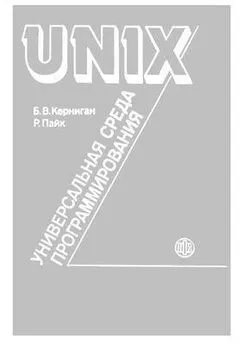

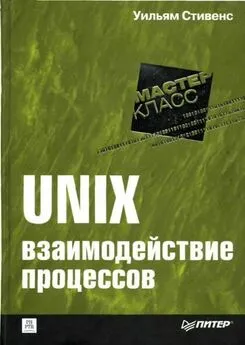


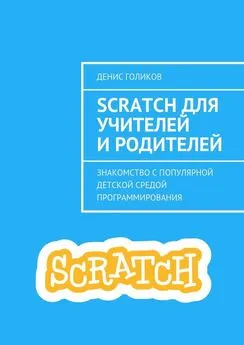
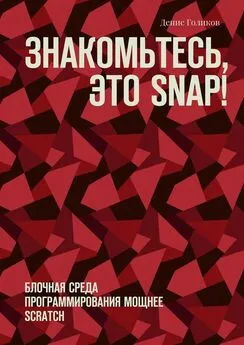

![Александр Мещеряков - Terra Nipponica [Среда обитания и среда воображения]](/books/1064223/aleksandr-mecheryakov-terra-nipponica-sreda-obitani.webp)
